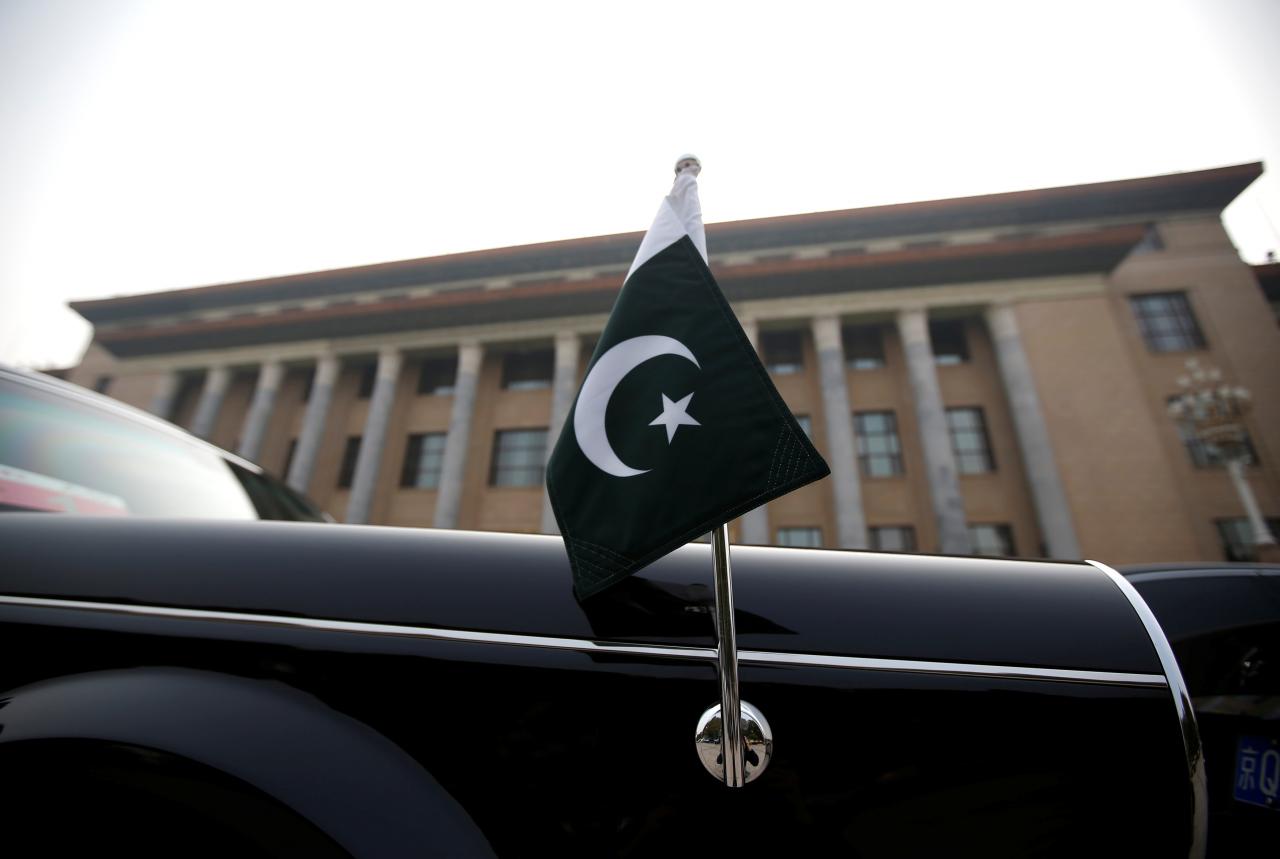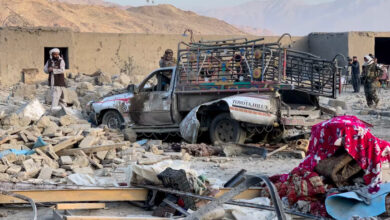
ISLAMABAD (Reuters) – Pakistan has made it easier to seize and freeze the assets of people and groups facing UN sanctions, the foreign ministry said, part of intensified efforts to dismantle Islamist militant groups.
Pakistan is under increasing pressure from global powers to act against militant groups carrying out attacks in India, including Jaish-e-Mohammed (JeM), which killed at least 40 Indian paramilitary police in a suicide bombing last month in the disputed Kashmir region.
The bomb attack led to the most serious conflict in years between the nuclear-armed neighbors with cross-border air strikes and a brief dogfight over the skies of Kashmir.
Tension cooled when Pakistan returned a downed Indian pilot on Friday.
Pakistan has long used some Islamist groups to pursue its aims in the region, but it has denied Indian accusations it actively supports militants fighting Indian forces in India’s part of the disputed Muslim-majority region of Kashmir.
From time to time – usually as a result of outside pressure – Pakistan has cracked down on anti-India militants but most factions manage to survive and resume activities.
Pakistan’s foreign ministry late on Monday said a new order, updating existing laws that deal with those on UN sanctions lists, had been issued “to streamline the procedure for implementation of Security Council sanctions against designated individuals and entities”.
Ministry spokesman Mohammad Faisal said the order was passed by the cabinet of Prime Minister Imran Khan.
Many Pakistani groups and individuals are sanctioned by the United Nations, including the JeM, and Hafiz Saeed, the founder of the Lashkar-e-Taiba (LeT) militant group that carried out the 2008 attacks in the Indian city of Mumbai, in which 166 people were killed.
Saeed, who holds public gatherings in Pakistan, has been at the heart of criticism that Pakistan does not enforce its anti-militancy laws.
On Monday, Information Minister Fawad Chaudhry said Pakistan had developed a “full-fledged strategy” to deal with militants and the government was looking to close “loopholes” that allowed banned groups to operate.
“With banned groups it will be made sure that they will be banned in practical terms also,” he said.
A senior counter-terrorism official told Reuters the government was looking to set up a coordination “cell” to oversee action against militants.
“This cell will coordinate with finance ministry, counter-terrorism departments, state bank, and financial monitoring units to see what actions have been taken against the militant groups, their assets and their sources of income,” he said.
The ministry had no immediate comment.
Over the weekend, both the United States and Britain urged Pakistan to deal with militant groups. Britain urged Khan to “address the causes of this conflict” with its neighbor.
Pakistan and India have gone to war three times, twice over the divided Himalayan region of Kashmir, which they both rule in part. India controls most of the region, including the populous Kashmir Valley.
Pakistan says Kashmir was unfairly made part of India when British India was partitioned at the end of colonial rule, and the people of Kashmir should be allowed to decide if they want to join Pakistan or remain part of India.
India rules that out.



